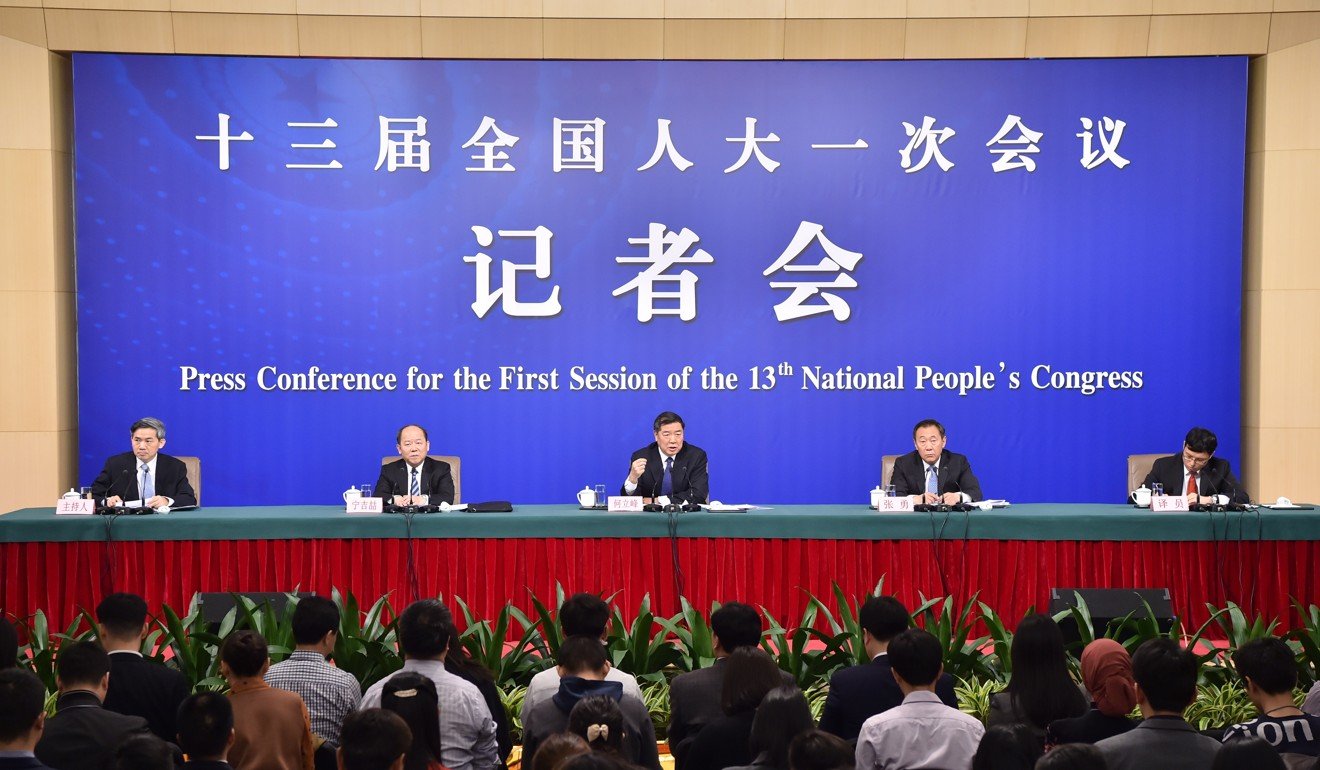
‘Too big and too powerful’: why Xi Jinping is reining in China’s economic planning agency
National Development and Reform Commission will lose a number of key responsibilities under government revamp, leaving it significantly weaker
China’s economic planning agency, a legacy of the command economy days that gained new power during the era of rapid state-led growth, will be significantly weaker under a government reshuffle announced on Tuesday.
The National Development and Reform Commission, known as the “little cabinet”, has been a formidable power centre in the world’s second-biggest economy, with its portfolio ranging from approving high-speed railway projects to the electricity rates for every household. It will remain one of the 26 bodies under the State Council, but many of its functions will be taken over by other agencies, according to the plan presented to the National People’s Congress.
Under the revamp, which is expected to be endorsed by the legislature later this week, the NDRC will lose responsibility for creating development zones to a new natural resources ministry, while its climate change unit will be transferred to the environment ministry. It will no longer approve agriculture investment projects – that responsibility goes to the new agriculture and rural affairs ministry – and its antitrust team will come under the new market supervision administration.
In addition, its oversight of “key national projects” will be transferred to the National Audit Office, and the new health commission will take over pricing of medicines and health care services.

Cai Jiming, director of Tsinghua University’s political economy research centre and an NPC delegate, said on Tuesday that the commission had focused too much on “development” and not enough on “reform”.
“Its [previous] responsibilities were focused on development ... It supervised too many things – planning, project approvals and investment – but it did very little in terms of reform,” Cai said.
The NDRC began as the State Planning Commission in 1952, and is often associated with China’s command economy.
Its power was on full display when Beijing announced a massive stimulus plan to boost growth after the global financial crisis in 2008. Then, the NDRC was inundated with local government officials seeking approvals for investment projects.
But the commission’s role and approach to managing the economy has often come under fire. “Reformist” outgoing central bank governor Zhou Xiaochuan in 2005 criticised the agency’s “planned economy mindset” in managing the long-term corporate bond market. The central bank later skirted away from the NDRC to develop a huge interbank bond market.
The commission is in charge of “industrial policies”, but it has been blamed for exacerbating overcapacity in industries ranging from steel to solar panels. The most recent case was approving to too many subway projects, with the state leadership eventually stepping in to cool off the investment frenzy.

The NDRC has also become known as a hotbed for corruption. Former vice-chairman Liu Tienan was sentenced to life imprisonment in 2014 for graft and taking bribes. Five of the seven top officials at its pricing department were also investigated for corruption at the time, with several of them jailed.
Wei Pengyuan, a former deputy director of the coal mining department, was given a suspended death sentence after his stash of more than 200 million yuan (US$31.6 million) of embezzled cash was uncovered at his home in 2014.
“The dismantling of the NDRC’s power is probably the most welcome part of the government’s reshuffle,” said Mao Shoulong, a professor at Renmin University of China in Beijing. “It is too big and too powerful.”
Liu He, top economic aide to President Xi Jinping and one of five vice-chairmen of the NDRC, is believed to be a key figure behind the government revamp.
He called the restructure a “revolutionary” move towards the goal of “letting the market play a decisive role in allocating resources”, in an article in Communist Party mouthpiece People’s Daily on Tuesday.
“The [third plenum] decision explicitly ordered that the management of micro affairs and detailed approvals be reduced, and government allocation of resources and intervention in market activities be minimised,” Liu wrote, without directly naming the NDRC.

